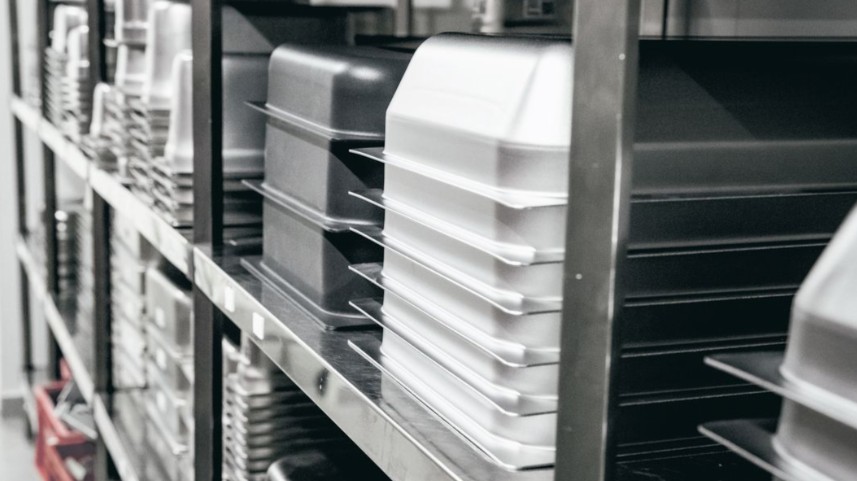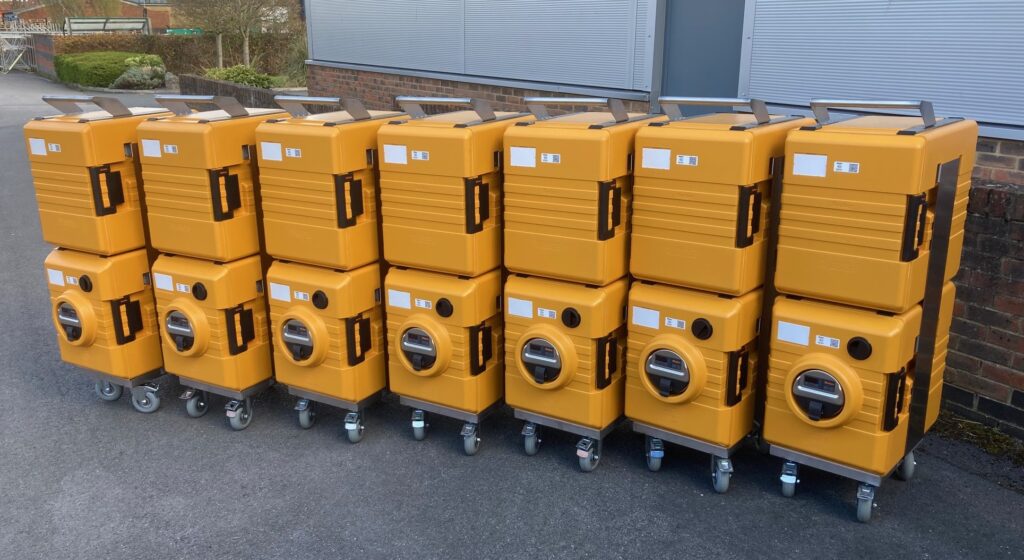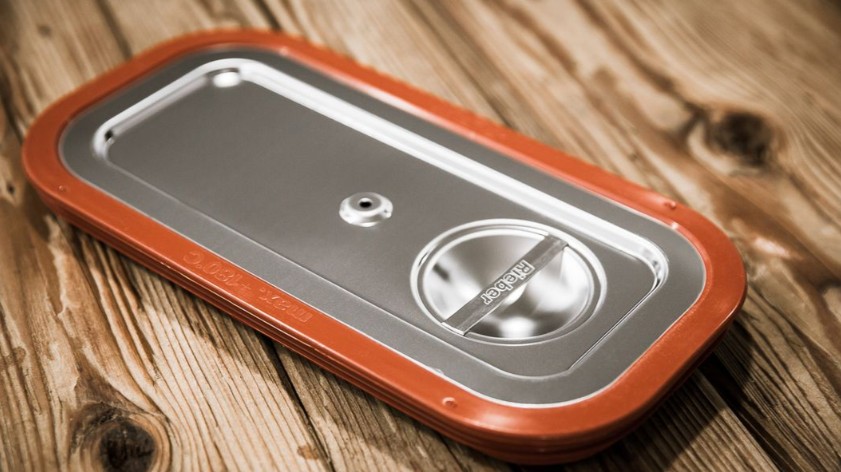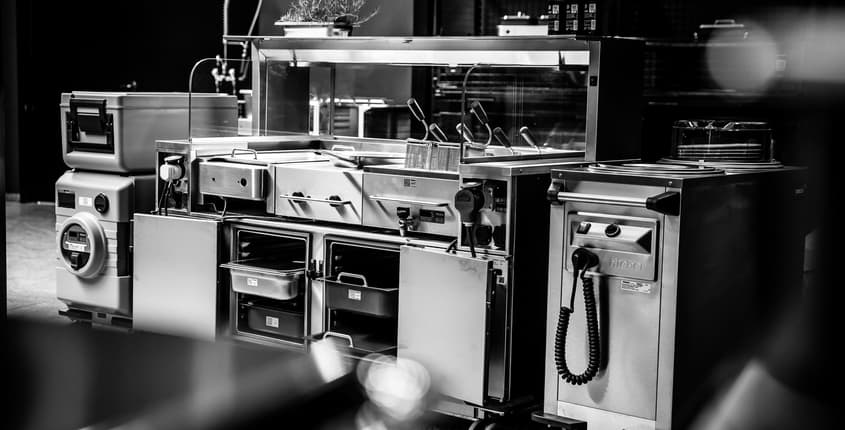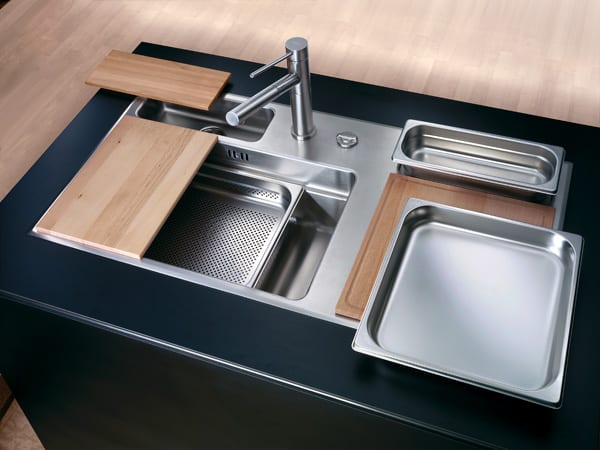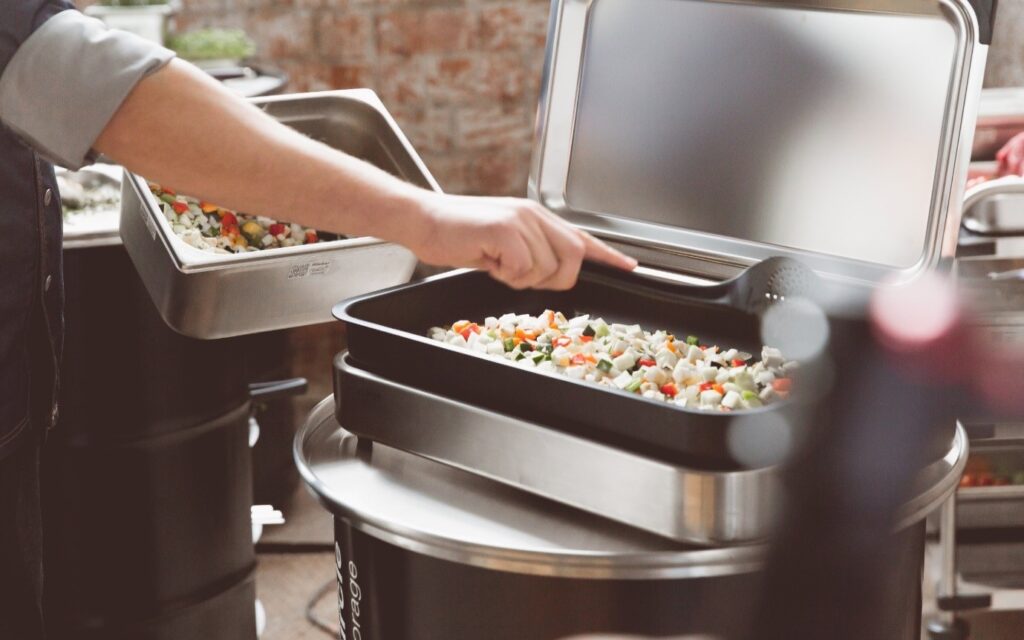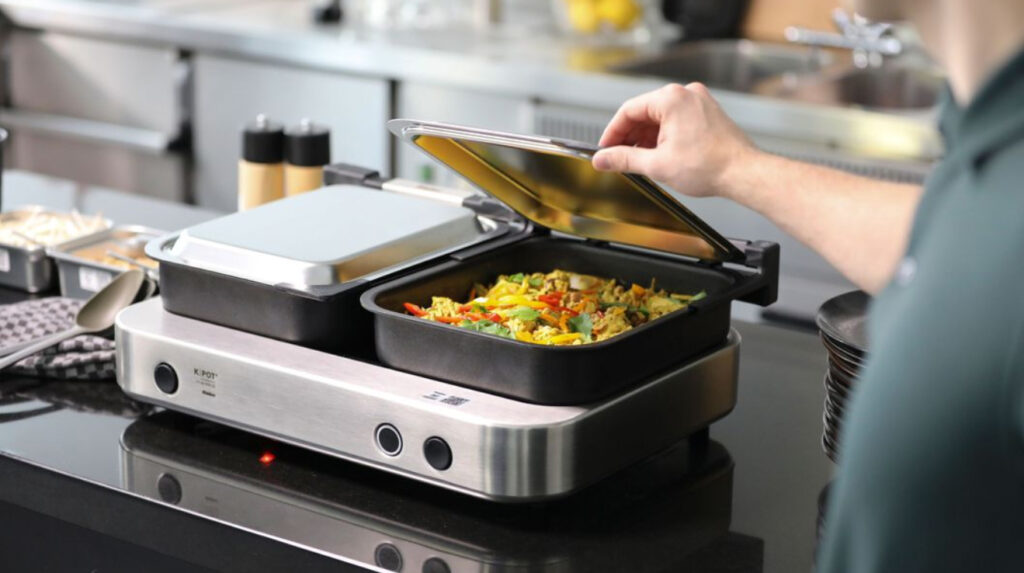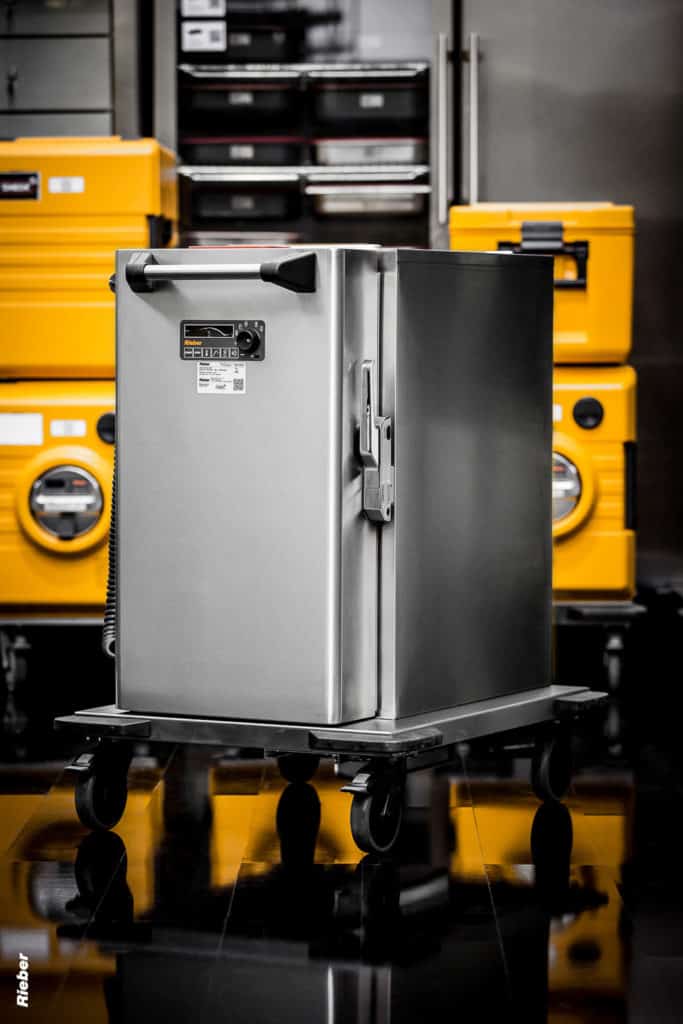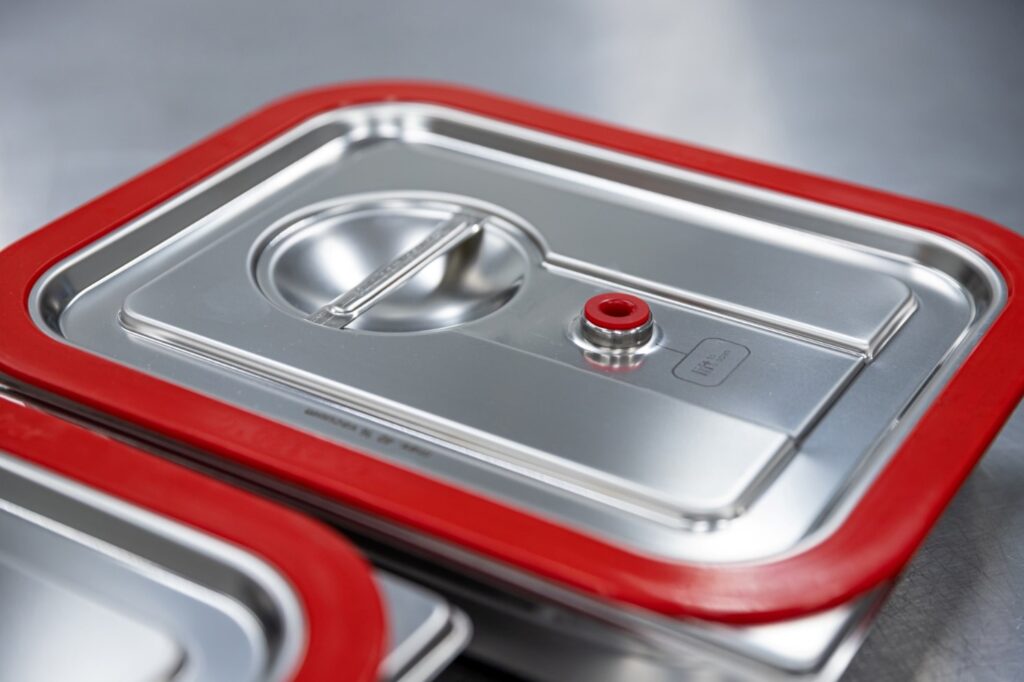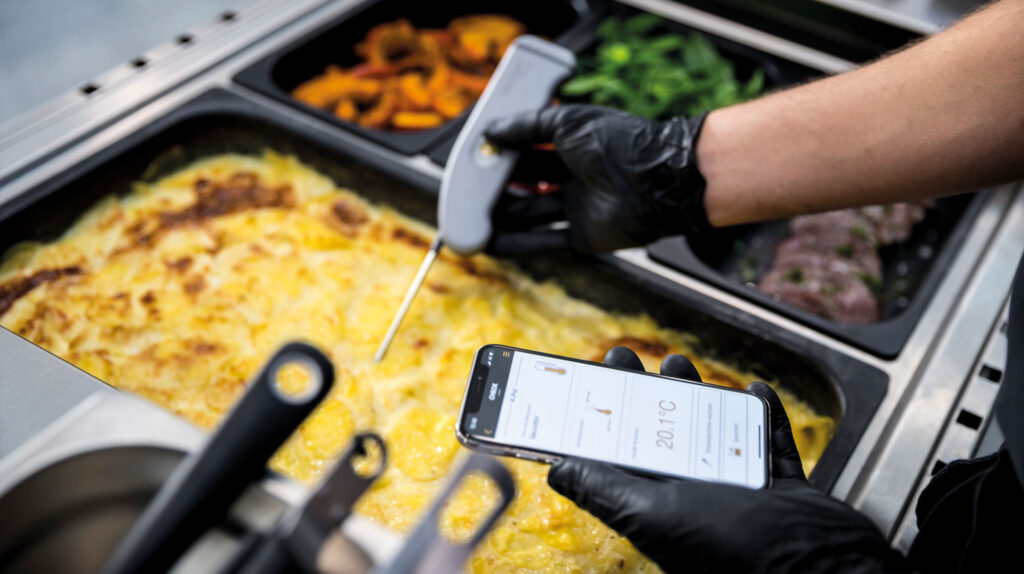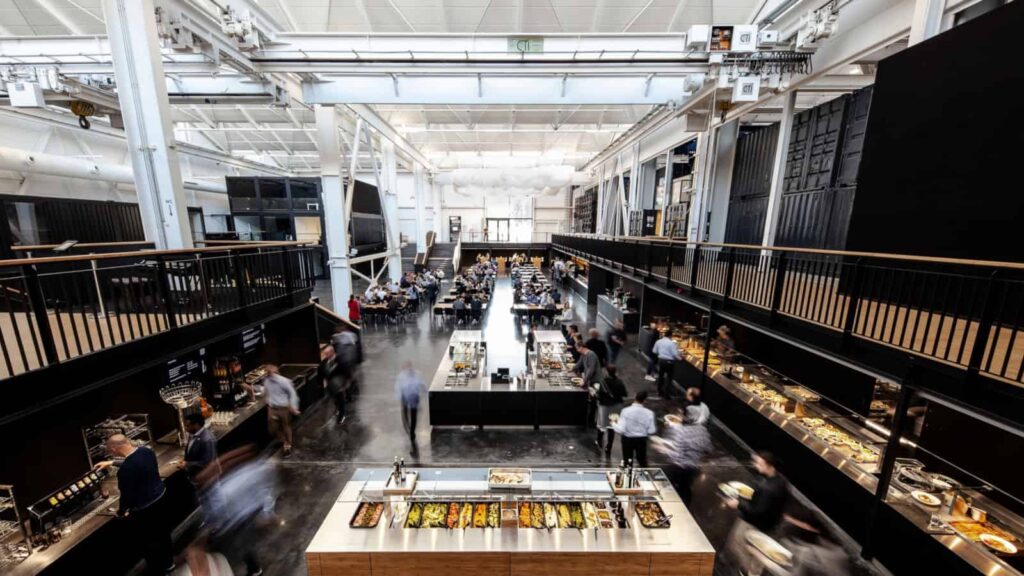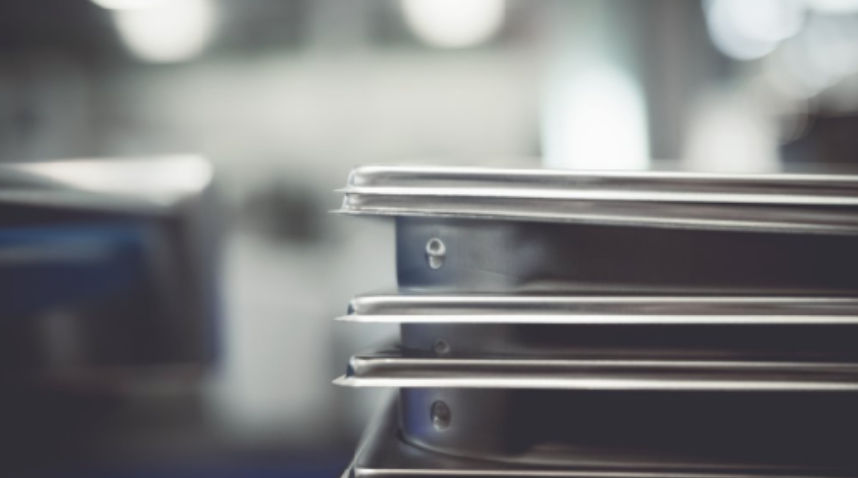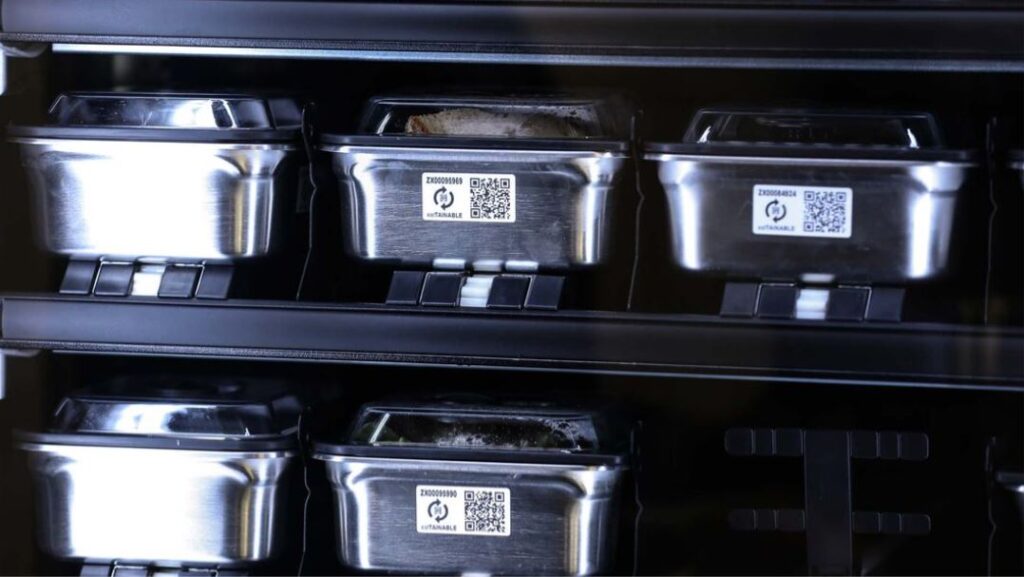The company began its life as Rieber + Renz, a joinery, furniture, and glazier’s workshop, in Reutlingen (Betzingen), Germany, in 1925. One year later, Mr Renz leaves, and Heinrich Rieber continues to run the young company, which developed a business in mass-producing teak sink cabinets with enamelled fitted basins.
A breakthrough occurred in 1936, when pioneering work with stainless steel from Krupp was conducted, laying the foundation for the future of metalworking. Stainless steel has since been the core material for Rieber’s material technology.
1964 – The standard GastroNorm:
Rieber launched the current international Gastronorm standard in 1964. RieberNORMSET® was the predecessor of the stainless-steel food containers we all know today. Rieber was instrumental in establishing a standard for professional catering, marking a revolution for the commercial kitchen sector.
1968 – Rieber Thermoport®:
The first insulated food transport container from Rieber was made of stainless steel and launched in 1968, with the now-famous lightweight and practical orange Rieber Thermoport to follow 10 years later. This mobile transport box can be used to transport various sizes of Gastronorm containers filled with food at the correct temperature, bridging the space and time gap between food production and consumption. To this day, this innovation remains one of Rieber’s core products and is in daily use worldwide, enabling the safe transportation of food at optimal temperatures.
In 1973…
Rieber introduced the 100% watertight press-in lid, which was crucial for safe food transport, as it allowed Gastronorm containers to be closed tightly, preventing leaks and protecting the contents. To this day, the high-quality, watertight press-in lid is recognised on the market for its tried and tested reliability and serves as a unique selling point for Rieber.
2002-2007 – Innovations by Eisfink – varithek® acs, servocuccina®, waterstation®:
Since 1998, a business relationship has existed between Rieber and Eisfink through Max Maier Senior, the owner of both companies. As a result, the Rieber product portfolio has been extended with further Eisfink innovations ever since. With the varithek ACS (air-cleaning system), the front cooking station, featuring integrated patented extraction technology and varithek modules, among others, is a flexible system module for cooking of any kind. Subsequently, the use of Varithek modules in a system was extended with the introduction of Servocuccina in 2007.
Since preparation in the kitchen is an essential process step, the system concept of the Gastronorm container was introduced to the sink in 2005 with the Waterstation cubic sink. As a result, preparations can be made on several levels at the sink itself and are standardised in a further process through to the cooking and serving with the Gastronorm operating system.
2006 – Material revolution with SWISS-PLY multi-layer material.
In 2006, Rieber launched thermoplates®, the first cooking pan with a Gastronorm format. The revolutionary SWISS-PLY multi-layer material is characterised by significantly faster conductivity than conventional stainless steel. This makes thermoplates® suitable for direct heat contact with the hob and particularly energy-efficient in use thanks to their outstanding conductivity. For the first time, the thermoplates enable continuous process flows throughout the entire “food flow”, from storage, preparation, and cooking to serving in a Gastronorm container without requiring food transfers. This saves time, reduces cleaning requirements, and lowers energy consumption, while also simplifying handling and improving food quality.
2009 – The new way of cooking – K|POT® & hybrid kitchen.
The next innovation came in 2009 with the lifestyle product K|POT®, a portable kitchen that meets all the requirements of modern catering. The intelligently automated table-top unit enables perfect, precise regeneration, directly on site and even without chefs or trained personnel, thanks to the stored automated programs and remote-control options. This enables pre-produced food to be finished off à la minute at a different time and location.
In 2009, another intelligent product was introduced – the hybrid kitchen, a multifunctional kitchen with heating and cooling functions available simultaneously.
2012 – Protecting resources with the vaculid® lid.
With the introduction of the Vaculid lid in 2012, the Gastronorm lid range was extended to include an innovative and sustainable variant for the preservation, cooking (with more efficient low-temperature cooking), and transport of food. Thanks to the vaculid® lid, the Gastronorm container system can be reliably vacuum sealed, thus considerably extending the shelf life of food. This not only reduces food waste, but also plastic and disposable packaging.
2012: Rieber gets connected through the CHECK CLOUD.
Rieber had also been working on the digitisation of the “food flow” to transparently and systematically document and organise the entire process that food passes through in a Gastronorm container in a commercial kitchen. With the CHECK system, Rieber developed a digital solution that, as a first step, reflects the legal documentation obligations according to HACCP (logging of temperature and hygiene-relevant data).
Since the summer of 2017, the innovation launched 4 years earlier has been developed as the CHECK CLOUD platform, together with the technical expertise of T-Systems (a subsidiary of Deutsche Telekom). The independent company CHECK Services was founded for this purpose. Rieber is a partner of the CHECK CLOUD open platform, enabling the digital networking of all Rieber kitchen infrastructure products in the long term.
2016 – Rieber flagship kitchen – speisewerk urbanharbor.
The Rieber flagship kitchen – speisewerk – opens in the innovative urbanharbor area in Ludwigsburg in 2016 as one of the first digital commercial kitchens in Europe. In addition to providing a bistro and lunch daily for local companies and the general public, speisewerk also supplies freshly cooked seasonal dishes to surrounding care facilities, such as nursery schools and schools. A mobile and urban catering concept in a GN stainless steel multi-cycle system, with the system, kitchen and transport infrastructure (thermoport®) supplied by Rieber and organised through the CHECK CLOUD digital platform. An innovative showroom where cooperative IoT business models can be experienced in live mode right in the kitchen of customers and interested parties.
2019 – Multi-cycle organisation with GN-ONE® | eatTAINABLE.
The further developed GN-ONE® container, featuring patented stacking lugs, enables easy unstacking and separation of the container system, both manually and automatically. This innovation sets a significant milestone for the efficiency and handling of Gastronorm containers.
A multi-cycle food supply can be handled with the new GN-ONE standard and eatTAINABLE. It can be reliably organised and tracked through the CHECK CLOUD platform, consequently, without a deposit.
With eatTAINABLE, the container’s QR code is scanned. Thus, the empties are recorded at various delivery points, allowing caterers/commercial kitchens to map their day-to-day catering operations without using disposable packaging—a forward-looking, environmentally and resource-friendly approach.
2020 – The products are digitally networked – Rieber CONNECT.
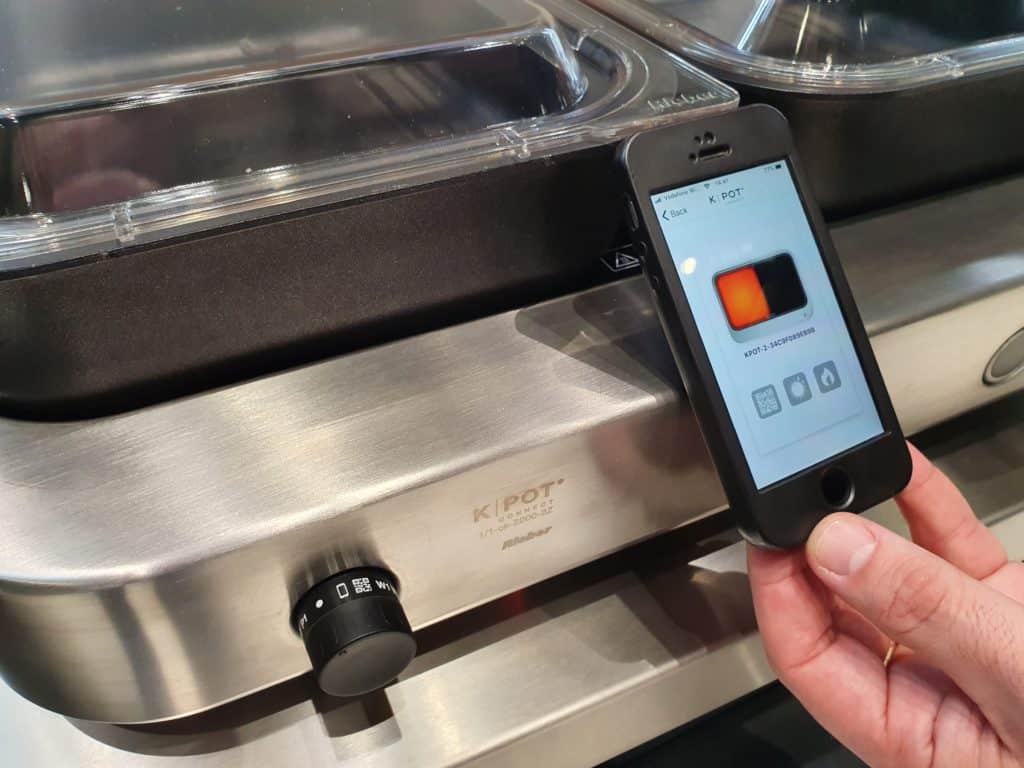
In addition to safety, hygiene, and food organisation through the CHECK CLOUD, Rieber networks its core products, the digital CONNECT range, with an app and dashboard. Starting with storage – the classic community refrigerator becomes multipolar CONNECT, a digitised sharing refrigerator, the doors of which can be opened via an app, using no keys whatsoever. For cooking and serving, flexible individual programs can be created and called up with the K|POT® CONNECT, perfectly tailored to the food. Consequently, the regeneration of a wide range of food, including Cook & Freeze dishes, is reliable and easily controlled, both digitally and automatically. Other transport and cooking products, such as the hybrid kitchen or Regiostation, are CONNECTED and can therefore be flexibly controlled digitally.
The Rieber Group comprises German production sites in Reutlingen and Trebbin, with approximately 600 employees, as well as sales subsidiaries in Austria (Rieber + Grohmann GesmbH), Switzerland (Rieber AG), and the United Kingdom (BGL Rieber Ltd.).
Rieber is represented by partners in all European countries and many countries worldwide. Rieber currently sells its products internationally, primarily in Europe, the Middle East, Asia, and North America, and is represented in numerous other export countries through partnerships.

